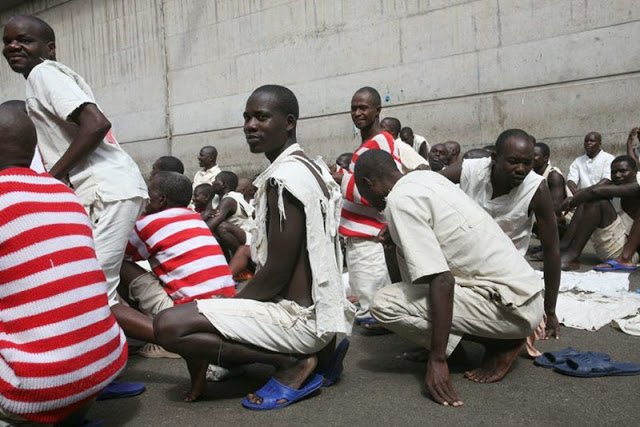Fidelicy Nyamukondiwa
Every person including the state and all government institutions
must respect, protect, promote and fulfil rights
and freedoms set out in the Declaration of Rights. The right to health care is
a fundamental human right set out in the Constitution. Even the sacred right to
life is dependent upon the right to health. Health rights must therefore be
respected, protected, promoted and fulfilled at all costs. This editorial is a
reflection on the realisation of the right to health care in Zimbabwe in view of
the horrific Coronavirus disease first identified in 2019 (COVID-19).
must respect, protect, promote and fulfil rights
and freedoms set out in the Declaration of Rights. The right to health care is
a fundamental human right set out in the Constitution. Even the sacred right to
life is dependent upon the right to health. Health rights must therefore be
respected, protected, promoted and fulfilled at all costs. This editorial is a
reflection on the realisation of the right to health care in Zimbabwe in view of
the horrific Coronavirus disease first identified in 2019 (COVID-19).
COVID -19 was declared a global pandemic by World Health Organisation
(WHO) on the 11th of March 2020.
So far, this pandemic has reportedly killed more than 16 000 people and
infected more than 380 000 worldwide. At the time of this publication Zimbabwe
reportedly had 8 confirmed cases and one death.
(WHO) on the 11th of March 2020.
So far, this pandemic has reportedly killed more than 16 000 people and
infected more than 380 000 worldwide. At the time of this publication Zimbabwe
reportedly had 8 confirmed cases and one death.
National Objectives
Chapter 2 of the Constitution has what are known as national
objectives. Commenting on the purpose of these state objectives, Dr Admark
Moyo, a constitutional law expert elaborated that “national objectives are a
crucial yardstick upon which the state can be held accountable in terms of
compliance with its human rights obligations towards the citizens”.
objectives. Commenting on the purpose of these state objectives, Dr Admark
Moyo, a constitutional law expert elaborated that “national objectives are a
crucial yardstick upon which the state can be held accountable in terms of
compliance with its human rights obligations towards the citizens”.
The provision of health services is one of the national
objectives set out in the Constitution. Section 29 of the Constitution states
that “The State must take all practical measures to ensure the provision of
basic, accessible and adequate health services throughout Zimbabwe”.
objectives set out in the Constitution. Section 29 of the Constitution states
that “The State must take all practical measures to ensure the provision of
basic, accessible and adequate health services throughout Zimbabwe”.
The Constitution also mandates the state to take preventive
measures against the spread of diseases.
Section 29 obligates the state to embark on education and public awareness
programmes to prevent the spread of diseases. These practical measures must be
taken within the limits of the state’s available resources. It therefore goes without saying that the
government of Zimbabwe must within the limits of available resources, take
practical measures to prevent the spread of COVID-19. ‘Limits
of available resources’ concept will be explained shortly.
measures against the spread of diseases.
Section 29 obligates the state to embark on education and public awareness
programmes to prevent the spread of diseases. These practical measures must be
taken within the limits of the state’s available resources. It therefore goes without saying that the
government of Zimbabwe must within the limits of available resources, take
practical measures to prevent the spread of COVID-19. ‘Limits
of available resources’ concept will be explained shortly.
The Right to health care.
Section 76 of the Constitution provides that every citizen
and permanent resident of Zimbabwe has the right to have
access
to basic health-care services. It also states that no person may be refused
emergency medical treatment in any health-care institution.
What is basic health care services in view of the COVID-19 pandemic? Provision
of sanitizers and protective masks to every Zimbabwean citizen seem be basic
health care. The Constitution also
mandates the state to ensure progressive realisation of the right to health
care within the limits of available resources.
and permanent resident of Zimbabwe has the right to have
access
to basic health-care services. It also states that no person may be refused
emergency medical treatment in any health-care institution.
What is basic health care services in view of the COVID-19 pandemic? Provision
of sanitizers and protective masks to every Zimbabwean citizen seem be basic
health care. The Constitution also
mandates the state to ensure progressive realisation of the right to health
care within the limits of available resources.
Healthy environment
rights
rights
Section 73 of the Constitution
provides for environmental rights. It states that every person has the right to
an environment that is not harmful to their health or well-being. The Oxford dictionary
defines the term harmful as ‘causing
or likely to cause harm’. It is common knowledge that killer COVID-19 is now
within the borders of Zimbabwe. Is our environment COVID-19 harmless? How is
the right to a Corona safe
environment realised? What are the state’s obligations? Section 73(2) provides
that the State must take reasonable legislative and other measures, ‘within the limits of the resources’
available to it.]
provides for environmental rights. It states that every person has the right to
an environment that is not harmful to their health or well-being. The Oxford dictionary
defines the term harmful as ‘causing
or likely to cause harm’. It is common knowledge that killer COVID-19 is now
within the borders of Zimbabwe. Is our environment COVID-19 harmless? How is
the right to a Corona safe
environment realised? What are the state’s obligations? Section 73(2) provides
that the State must take reasonable legislative and other measures, ‘within the limits of the resources’
available to it.]
Within the limits of
available resources
available resources
Can the state be held
liable for failure to fulfil constitutional obligations regarding human rights?
Commenting on the realisation of the right to water, Chantelle Moyo, an
environmentalist asserts that “…even though immediate obligations for the
State exist in the protection of the right…, it will not be found liable for
the violation of the right where it fails to meet its obligations due to
resource limitations.” The same can be said in the context of the realisation
of the right to health care services.
liable for failure to fulfil constitutional obligations regarding human rights?
Commenting on the realisation of the right to water, Chantelle Moyo, an
environmentalist asserts that “…even though immediate obligations for the
State exist in the protection of the right…, it will not be found liable for
the violation of the right where it fails to meet its obligations due to
resource limitations.” The same can be said in the context of the realisation
of the right to health care services.
Section 9 of the
Constitution mandates the state to ensure that all institutions and agencies of
government at every level are provided with adequate resources and
facilities to enable them to carry out their
functions conscientiously, fairly, honestly and efficiently. This means that in
the wake of COVID-19, the government must ensure that the health ministry, all hospitals,
clinics, isolation centers and any other health institutions are adequately
financed and resourced to guarantee effectiveness.
Constitution mandates the state to ensure that all institutions and agencies of
government at every level are provided with adequate resources and
facilities to enable them to carry out their
functions conscientiously, fairly, honestly and efficiently. This means that in
the wake of COVID-19, the government must ensure that the health ministry, all hospitals,
clinics, isolation centers and any other health institutions are adequately
financed and resourced to guarantee effectiveness.
Wilkins Infectious Diseases Hospital was designated as the
main isolation centre for COVID-19 in Zimbabwe.
On March 20, 2020, Zimbabwe
Independent
reported that Wilkins hospital had run out of protective clothing. After the
death of journalist Zororo Makamba on March 23, 2020, ZimLive.com, reported that the room at Wilkins
in which the now deceased was “had no water, no ventilators and not even a
power socket”. On 24 march 2020, Herald reported that a Chinese company
had invested more than US$ 500 000 towards the upgrading of Wilkins hospital
and that US$150 000 had been additionally put in place towards the procurement
of medical equipment which include ventilators test kits and protective
clothing.
main isolation centre for COVID-19 in Zimbabwe.
On March 20, 2020, Zimbabwe
Independent
reported that Wilkins hospital had run out of protective clothing. After the
death of journalist Zororo Makamba on March 23, 2020, ZimLive.com, reported that the room at Wilkins
in which the now deceased was “had no water, no ventilators and not even a
power socket”. On 24 march 2020, Herald reported that a Chinese company
had invested more than US$ 500 000 towards the upgrading of Wilkins hospital
and that US$150 000 had been additionally put in place towards the procurement
of medical equipment which include ventilators test kits and protective
clothing.
Legislative measures
The Constitution mandates
the state to take “reasonable legislative
measures” to ensure realisation of health rights. On 23 March 2020,
Statutory Instruments 76 and 77 of 2020 were gazetted. SI 76 of 2020 declared
COVID -19 a state disaster. SI 77 of 2020 sets out preventive, containment and
treatment regulations for COVID-19. It prohibits public gatherings and provides
for quarantining, isolation, compulsory testing and detention among other
measures to contain the pandemic.
the state to take “reasonable legislative
measures” to ensure realisation of health rights. On 23 March 2020,
Statutory Instruments 76 and 77 of 2020 were gazetted. SI 76 of 2020 declared
COVID -19 a state disaster. SI 77 of 2020 sets out preventive, containment and
treatment regulations for COVID-19. It prohibits public gatherings and provides
for quarantining, isolation, compulsory testing and detention among other
measures to contain the pandemic.
SI 77 of 2020 was
followed by the promulgation of SI 83 OF 2020, the Public Health (COVID-19
Prevention, Containment and Treatment) (National Lockdown) Order on 28 March
2020. This SI regularizes the 21 days national lockdown announced by President
ED Mnangagwa on 27 March 2020. The lockdown order limits citizens’ freedom of
movement. It criminalises inter alia, hindering enforcement officers and
failing to comply with enforcement officers’ directives.
followed by the promulgation of SI 83 OF 2020, the Public Health (COVID-19
Prevention, Containment and Treatment) (National Lockdown) Order on 28 March
2020. This SI regularizes the 21 days national lockdown announced by President
ED Mnangagwa on 27 March 2020. The lockdown order limits citizens’ freedom of
movement. It criminalises inter alia, hindering enforcement officers and
failing to comply with enforcement officers’ directives.
Conclusion
Every Zimbabwean citizen
and resident has a constitutionally protected right to have access to basic health
care services. Every person has a right to a COVID-19 free environment. All
health care institutions must be ready to provide emergency treatment for
COVID-19. The state has an obligation to
ensure health rights are progressively realised. Failure to do so is a clear
human right violation. A close reading of the Constitution however entails that
the government cannot be said to have violated the right to health if it fails
to fulfil its obligations due to resource limitations. May the Lord Almighty be
with us!
and resident has a constitutionally protected right to have access to basic health
care services. Every person has a right to a COVID-19 free environment. All
health care institutions must be ready to provide emergency treatment for
COVID-19. The state has an obligation to
ensure health rights are progressively realised. Failure to do so is a clear
human right violation. A close reading of the Constitution however entails that
the government cannot be said to have violated the right to health if it fails
to fulfil its obligations due to resource limitations. May the Lord Almighty be
with us!







